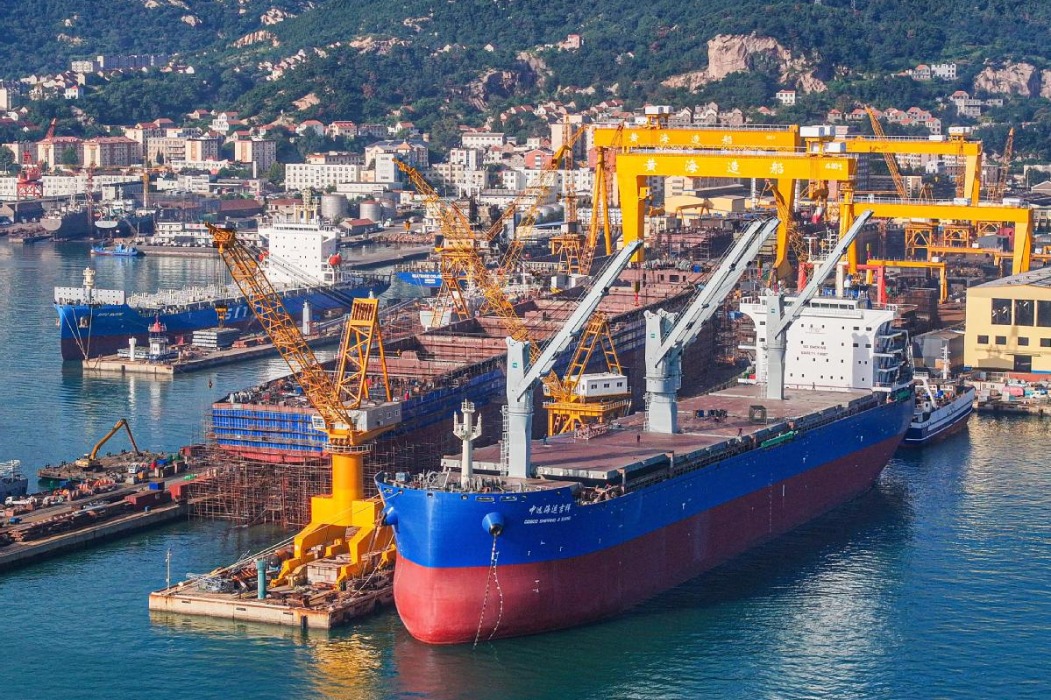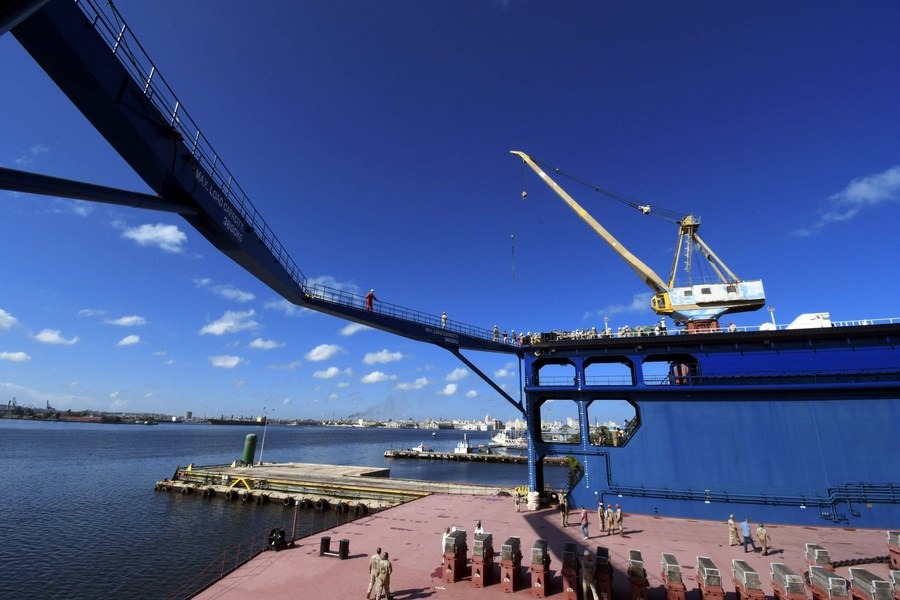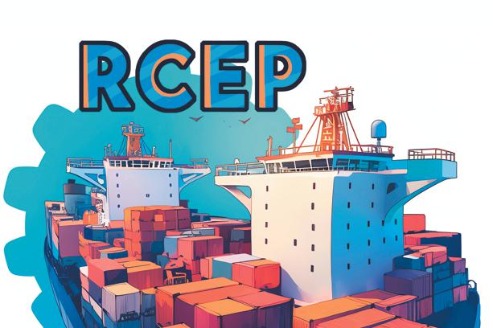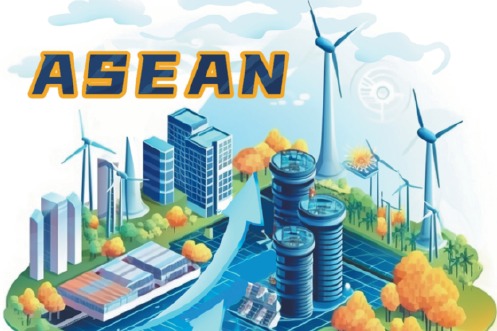Promoting mutual benefit and win-win cooperation between China and Latin America

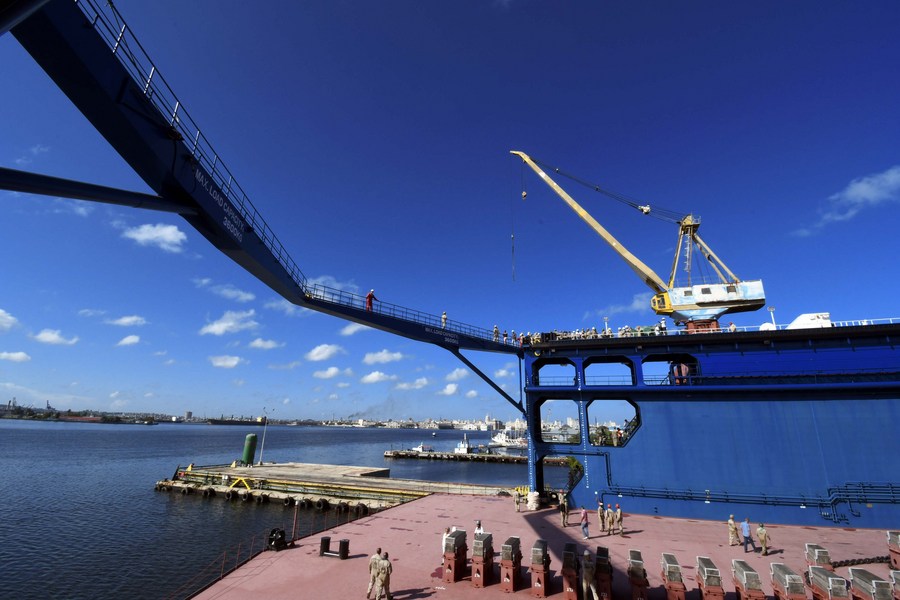
Diplomats and envoys from over 20 Latin American and Caribbean countries, including Brazil, Uruguay, Chile, Cuba, Mexico, Peru, and Barbados, along with experts from the scientific community, representatives of scientific institutions, and enterprises, attended the China-Latin America Science Day hosted by the Chinese Ministry of Science and Technology on Wednesday.
During the event, participants from both sides engaged in honest and in-depth discussions to deepen technological cooperation and reached a broad consensus.
In recent years, technological cooperation between China and Latin America has flourished, expanding into more fields and including more diverse stakeholders, becoming a new highlight of their pragmatic cooperation and receiving widespread attention. Several issues are worth noting.
First, why should China and Latin America continuously deepen technological cooperation?
Technological innovation is a vital engine for human societal development and a powerful tool to combat global challenges.
Currently, China and Latin America are actively promoting the construction of a China-Latin America community with a shared future, aiming for common prosperity and jointly addressing global challenges such as food security and climate change.
Deepening technological cooperation is an essential route for achieving these goals. There have already been successful practices. For instance, China's satellite cooperation project with Bolivia has enabled remote education and mobile medical services in remote areas of Bolivia.
The Punta Sierra Wind Farm, funded by China in Chile, is continuously providing green energy to local households. The China-Brazil Earth Resources Satellite developed by the two countries is ensuring the ecological protection of the Amazon Rainforest.
Furthermore, technological cooperation between China and Latin America will significantly support global technological collaboration and advancement, helping to break technological monopolies, the "digital iron curtain", and technological hegemonies, demonstrating the united opposition of the two sides to unilateralism and the excessive use of tariffs by certain countries, and upholding international fairness and justice.
Second, why is there a broad prospect for China-Latin America technological cooperation?
First of all, China-Latin America relations are rooted in mutual benefit and friendliness. China has always adhered to the principles of mutual respect, equality, reciprocity, openness, inclusiveness, and win-win cooperation in developing friendly relations with Latin American and Caribbean countries.
There is genuine mutual support and joint progress between China and Latin America, rather than zero-sum games or winner-takes-all geopolitics. China will join with Latin America to embrace the new wave of technological revolution and industrial transformation, allowing the fruits of technological progress to benefit Latin American and Caribbean countries continuously, and increasing the technological content of China-Latin America relations in the new era.
Secondly, pragmatic cooperation between China and Latin America provides extensive space for deepening technological cooperation. Currently, cooperation in traditional sectors such as infrastructure, agriculture, energy, and mineral resources between China and Latin America is improving and upgrading, while cooperation in emerging fields such as 5G, digital technology, new energy, new materials, biopharmaceuticals, and aerospace is developing rapidly.
Technological innovation cooperation can strongly empower these areas and derive extensive application scenarios, forming an additive amplification effect and propelling China-Latin America cooperation toward higher quality and accelerated transformation.
Thirdly, the technological capabilities of China and Latin America are highly complementary. China is globally advanced in fields such as artificial intelligence, satellite technology, and big data, while Latin American countries have unique advantages in biodiversity protection, agricultural technology, and renewable energy. The complementarity of both sides' technological strengths translates into significant potential for cooperation.
Finally, how does overall cooperation between China and Latin America help boost Sino-Latin American technological cooperation?
This year marks the 10th anniversary of the formal operation of the Forum of China and the Community of Latin American and Caribbean States (China-CELAC Forum).
Over the past decade, the China-CELAC Forum has flourished, becoming an essential platform for pragmatic cooperation between China and Latin America. Within its framework, more than 100 events across 31 professional fields have been successfully held, propelling China-Latin America relations into a new stage characterized by equality, mutual benefit, innovation, openness, and people-centricity.
Leveraging the China-CELAC Forum, both sides have established several hallmark projects: the China-Latin America Technological Innovation Forum, the China-Latin America Digital Technology Cooperation Forum, the China-Latin America New Energy Cooperation Forum, and the China-Latin America Aerospace Cooperation Forum.
These initiatives support areas such as technology transfer, new sustainable food innovation, and other critical challenges. Next month, the fourth ministerial meeting of the China-CELAC Forum will be held in Beijing. This grand event of unity and cooperation between China and Latin America will outline future cooperation plans and create new development opportunities for bilateral technological cooperation.
Innovation leads the future, and openness creates prosperity. The joint efforts of China and Latin America will undoubtedly further consolidate the consensus on technological cooperation, gather cooperative strengths, and promote mutual benefit and win-win results through technological innovation.
These efforts will significantly contribute to deepening and realizing the China-Latin America community of shared destiny, bringing greater benefits to the people on both sides.
The author is an international observer.
The views don't necessarily represent those of China Daily.
If you have a specific expertise, or would like to share your thought about our stories, then send us your writings at [email protected], and [email protected].






















